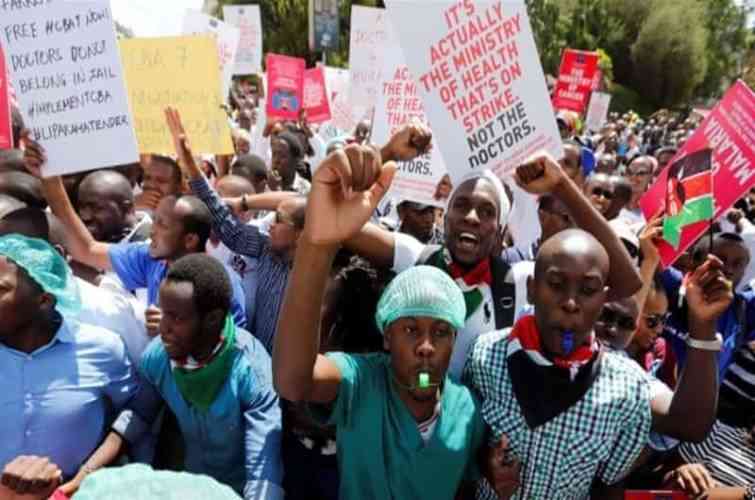This Monday, global citizens mark the World Aids Day, reflecting on a scourge that has been with us for three decades. The epidemic has devastated millions of people, leaving in its wake anguish, a strained health care system, and a huge financial dent.
This year’s theme centres on closing the gap by empowering and enabling all people, everywhere, to access the required HIV and Aids services to keep them healthy and productive.
For Kenya, this day provides an opportunity to talk about a group of persons seemingly forgotten as the country works towards prevention, early diagnosis and personalised HIV management.
Doctors, nurses, laboratory technicians, public health officers, nutritionists and other cadres of health workers in hospitals have been forgotten in the HIV-roll out strategies, yet the condition is slowly decimating their numbers.
In 2011, a health facility in Kenya lost 11 HIV positive health workers already put on ARV treatment, but who had defaulted medicine for lack of psychological support within their familiar environment; the hospital.
Kenya’s contribution should focus on including all people, health workers too, if we are to achieve the desired milestones by 2030.
The major challenge facing the HIV positive health workers is lack of programmes where they can access quality and affordable healthcare against HIV and other opportunistic infections. They also require a conducive platform for psychosocial support.
Kenya must bridge this gap and in the next 12 months until December 1, next year, take ample time to talk to the affected health workers and walk the journey with them.
Treatment is a combined effort of social capital and adherence to the prescribed treatment regime, thus it is critical to provide avenues where health workers with HIV and other medical conditions receive necessary support. It is not enough to take drugs in hiding due to stigma and discrimination.
Still, Kenya is part of the continental call seeking to support the African vision for achieving zero new HIV infections, zero discrimination and zero Aids-related deaths.
To get to zero, we must tame stigma and discrimination right from the hospital corridors, especially by health workers towards their own, given their critical role in provision of healthcare.
Failure to access comprehensive HIV treatment and prevention services is still a major hindrance among certain populations, yet if we stigmatise health workers whose role is to act as HIV educators and carers, who will get the message to them?
That each health worker has a binding duty to do no harm to those under their care, is the agenda that this support group of HIV positive medics upholds.
Despite presence of HIV management guidelines, Kenya lacks comprehensive data on the magnitude of health workers who are HIV positive and clear guidelines in health facilities to support them to work best within their health facilities.
In as much as the available HIV guidelines recognises the rights of HIV positive health care providers to continue practising under certain conditions; like strict observation of recommended infection control procedures and adherence to preventative steps that protect the public from any risk of infections; their colleagues in the health facilities should be more proactive and provide a conducive working environments.
Stay informed. Subscribe to our newsletter
The thousands of scientific advances that HIV treatment has made and the presence of laws to protect people living with HIV provide a better understanding of the condition today.
Stigma and discrimination should, therefore, not be experienced by HIV positive persons.
As we mark the World Aids Day on Monday, let us all test our knowledge and awareness on this scourge, and take the chance to share love with those infected and the affected, rather than enhance stigma. They are our siblings, friends and even colleagues at work.
 The Standard Group Plc is a
multi-media organization with investments in media platforms spanning newspaper
print operations, television, radio broadcasting, digital and online services. The
Standard Group is recognized as a leading multi-media house in Kenya with a key
influence in matters of national and international interest.
The Standard Group Plc is a
multi-media organization with investments in media platforms spanning newspaper
print operations, television, radio broadcasting, digital and online services. The
Standard Group is recognized as a leading multi-media house in Kenya with a key
influence in matters of national and international interest.
 The Standard Group Plc is a
multi-media organization with investments in media platforms spanning newspaper
print operations, television, radio broadcasting, digital and online services. The
Standard Group is recognized as a leading multi-media house in Kenya with a key
influence in matters of national and international interest.
The Standard Group Plc is a
multi-media organization with investments in media platforms spanning newspaper
print operations, television, radio broadcasting, digital and online services. The
Standard Group is recognized as a leading multi-media house in Kenya with a key
influence in matters of national and international interest.








